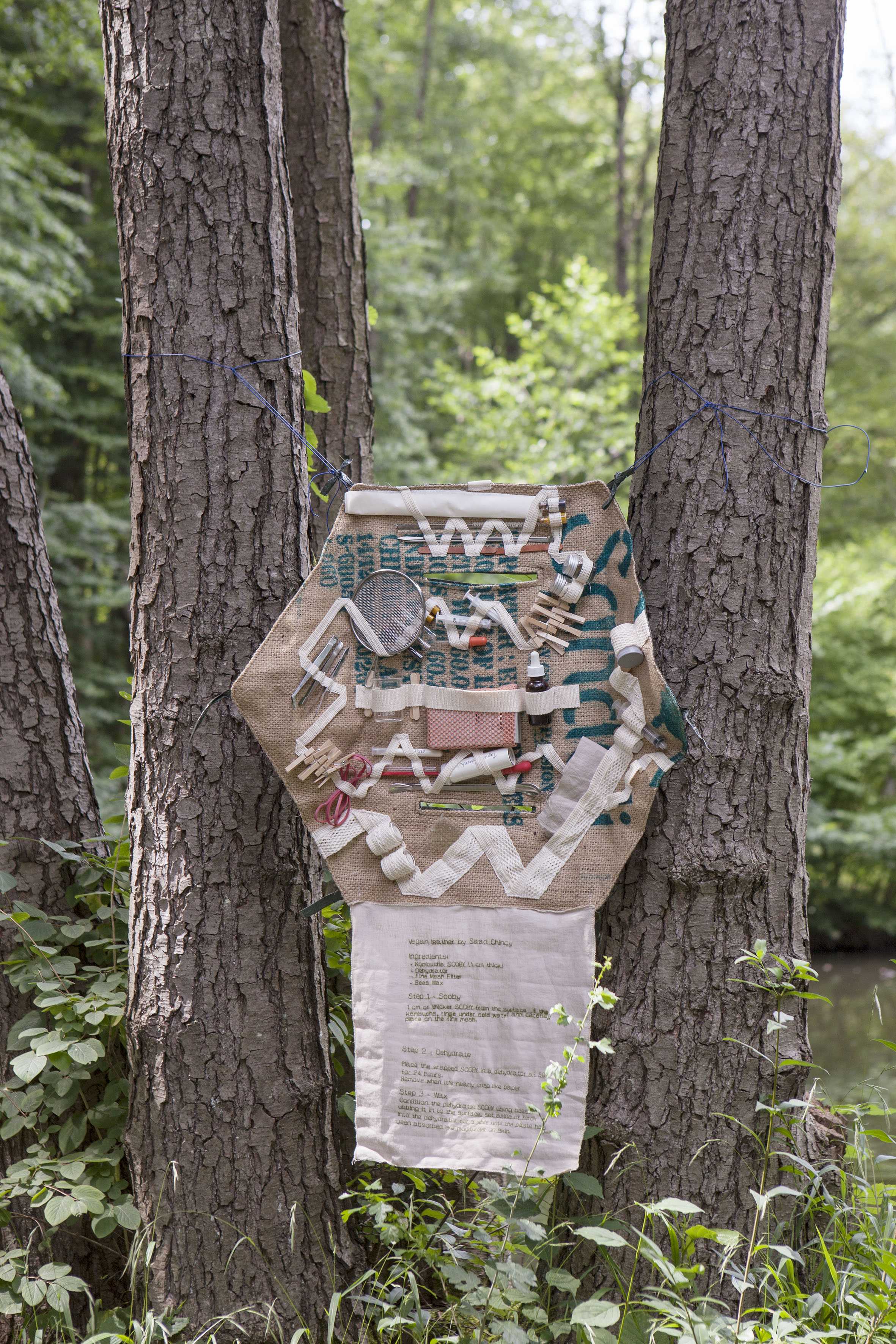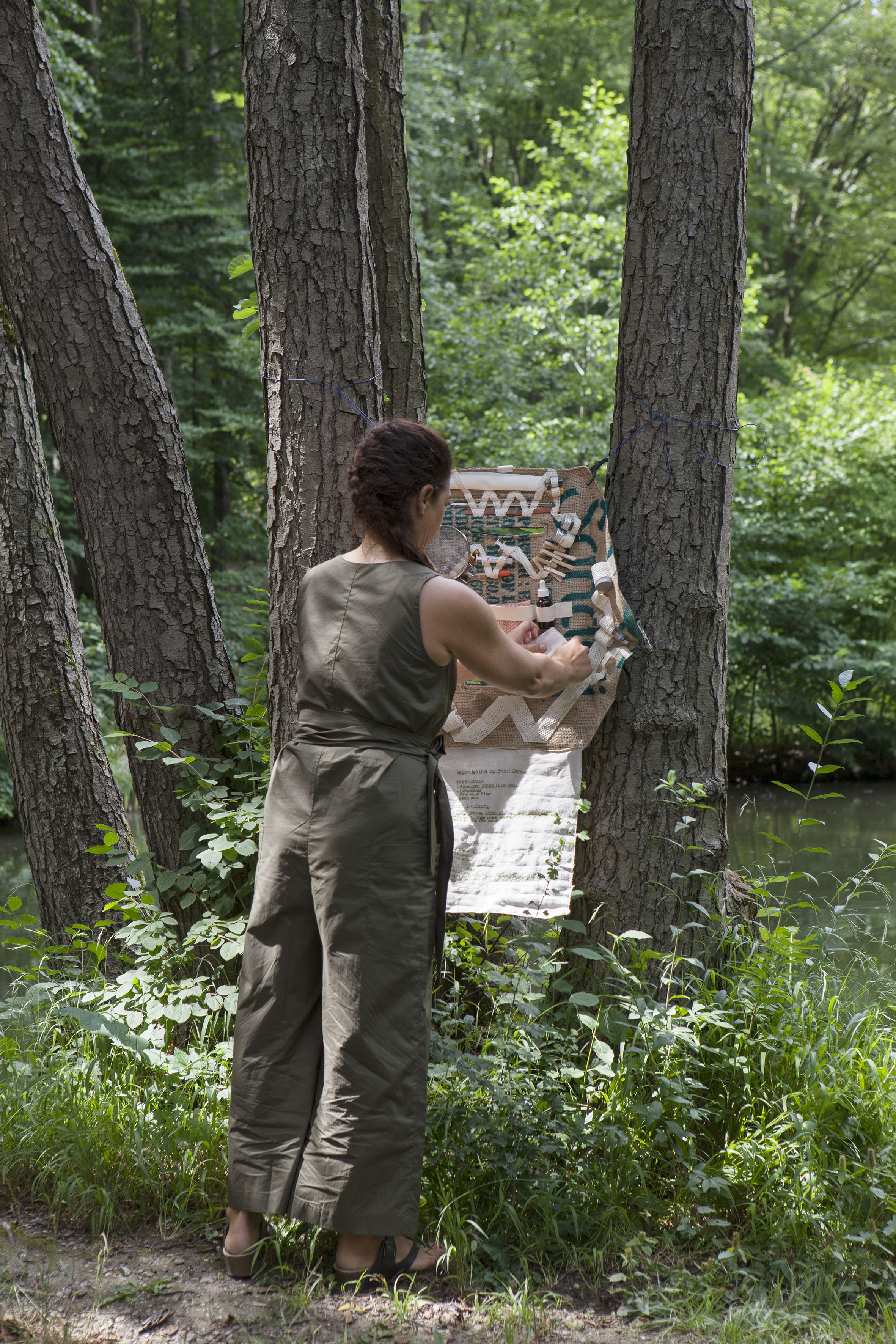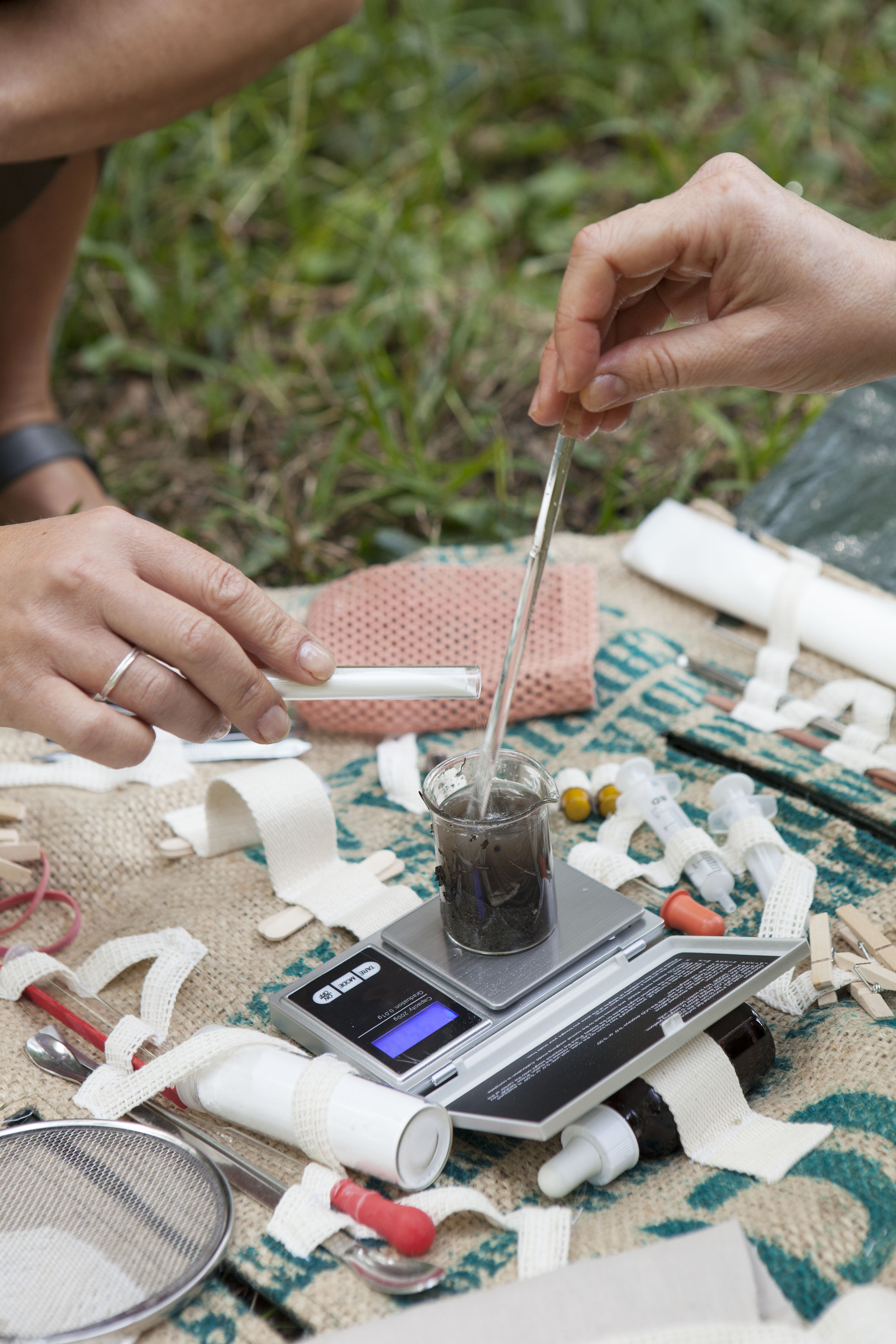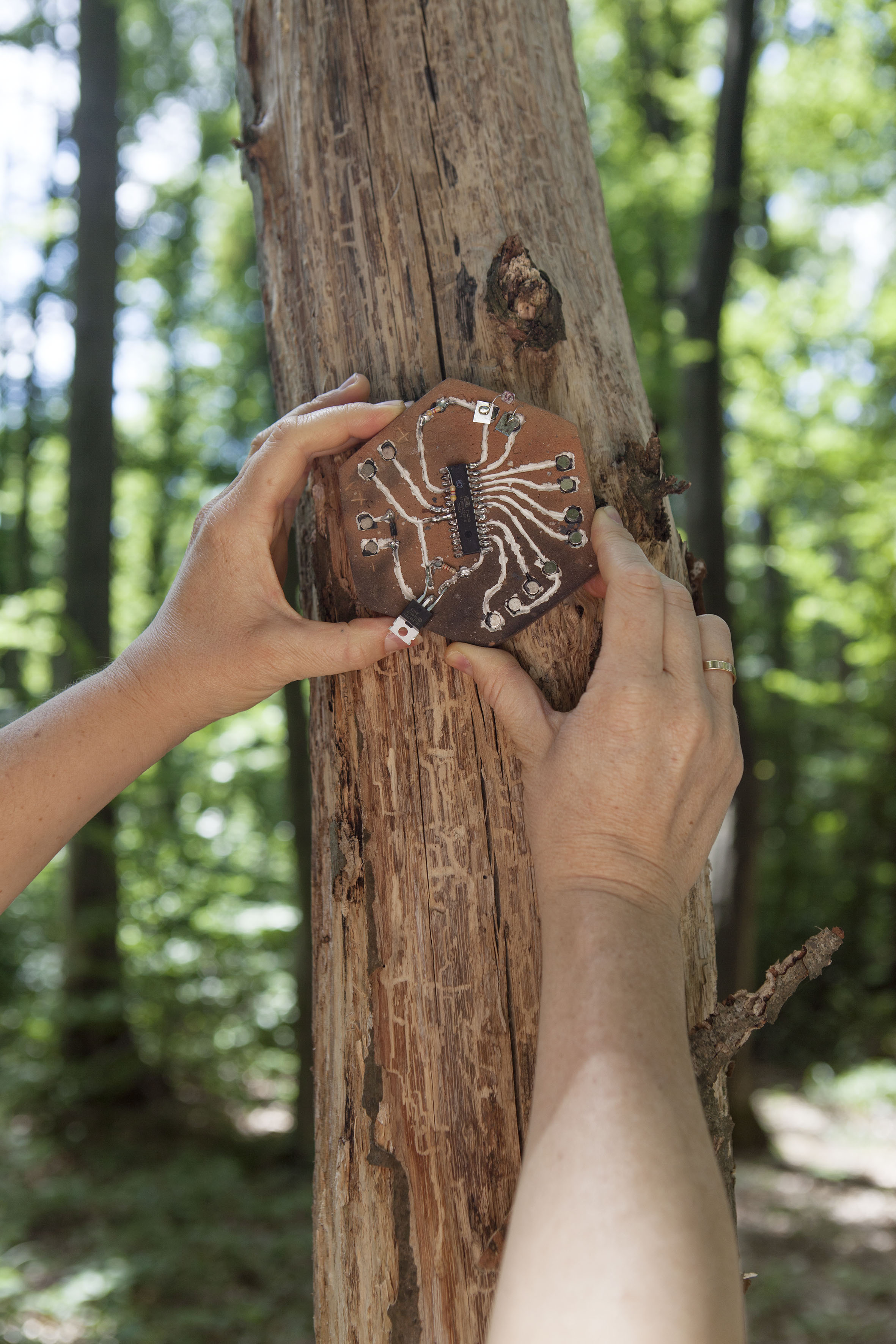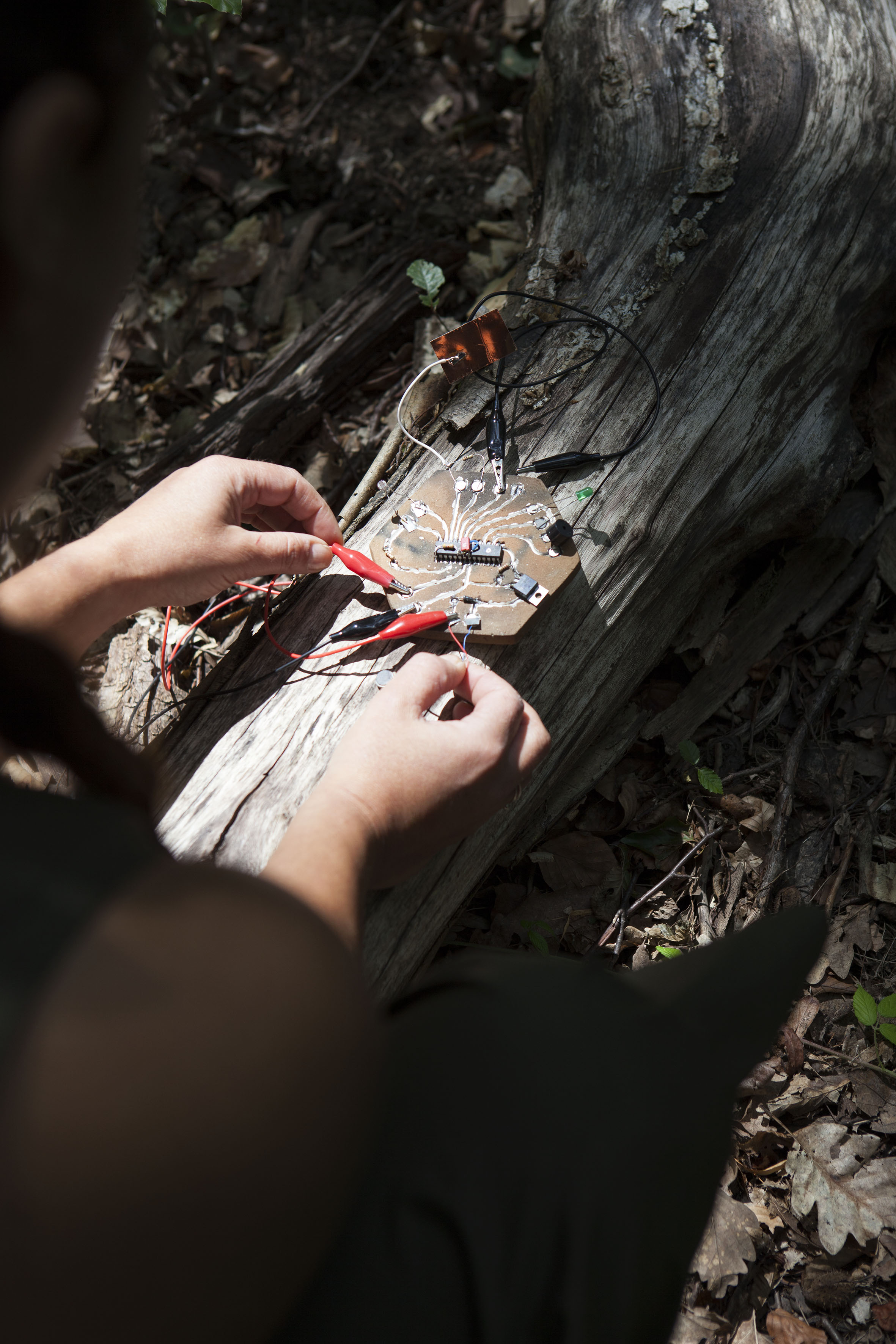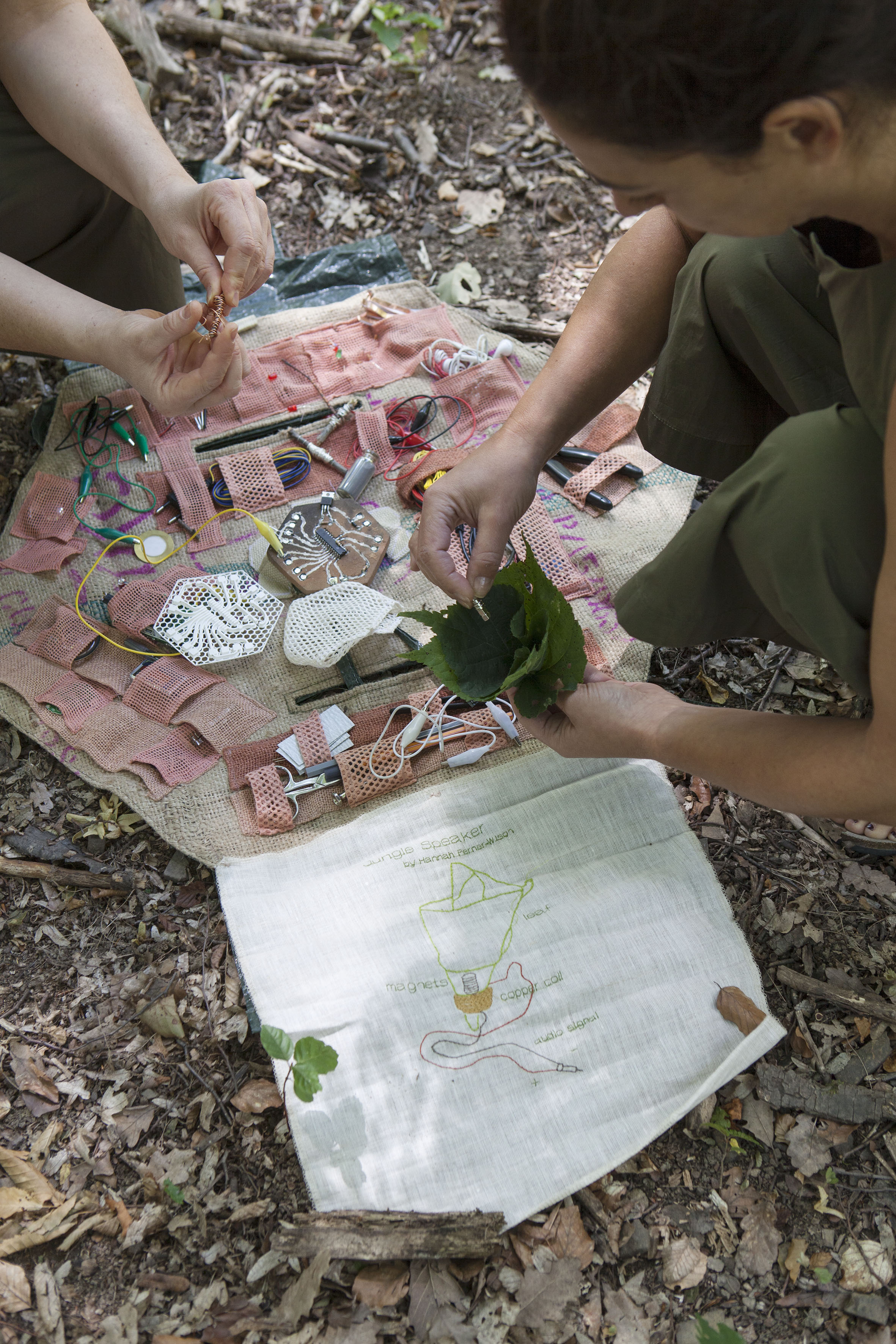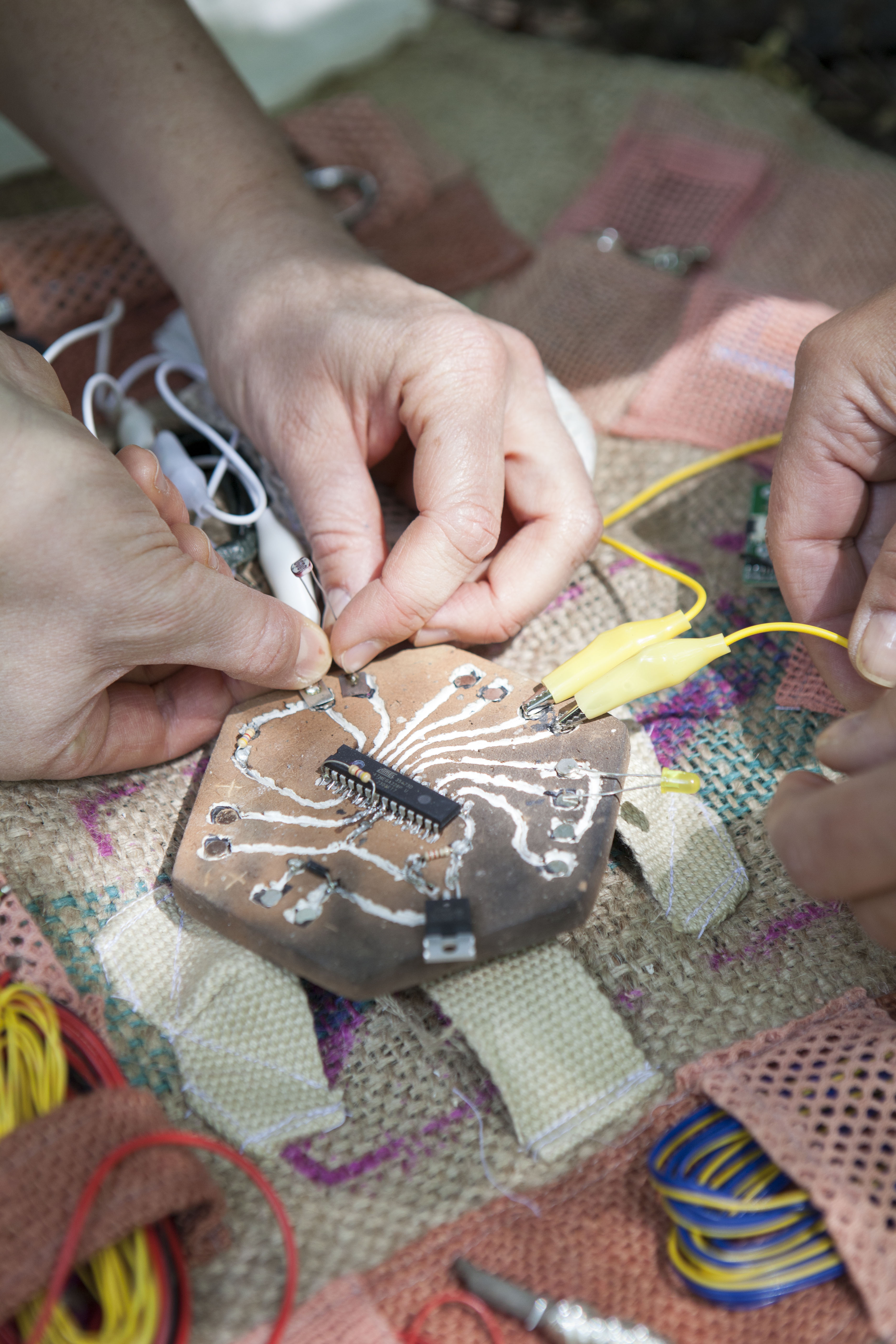Ethical Hardware Kit
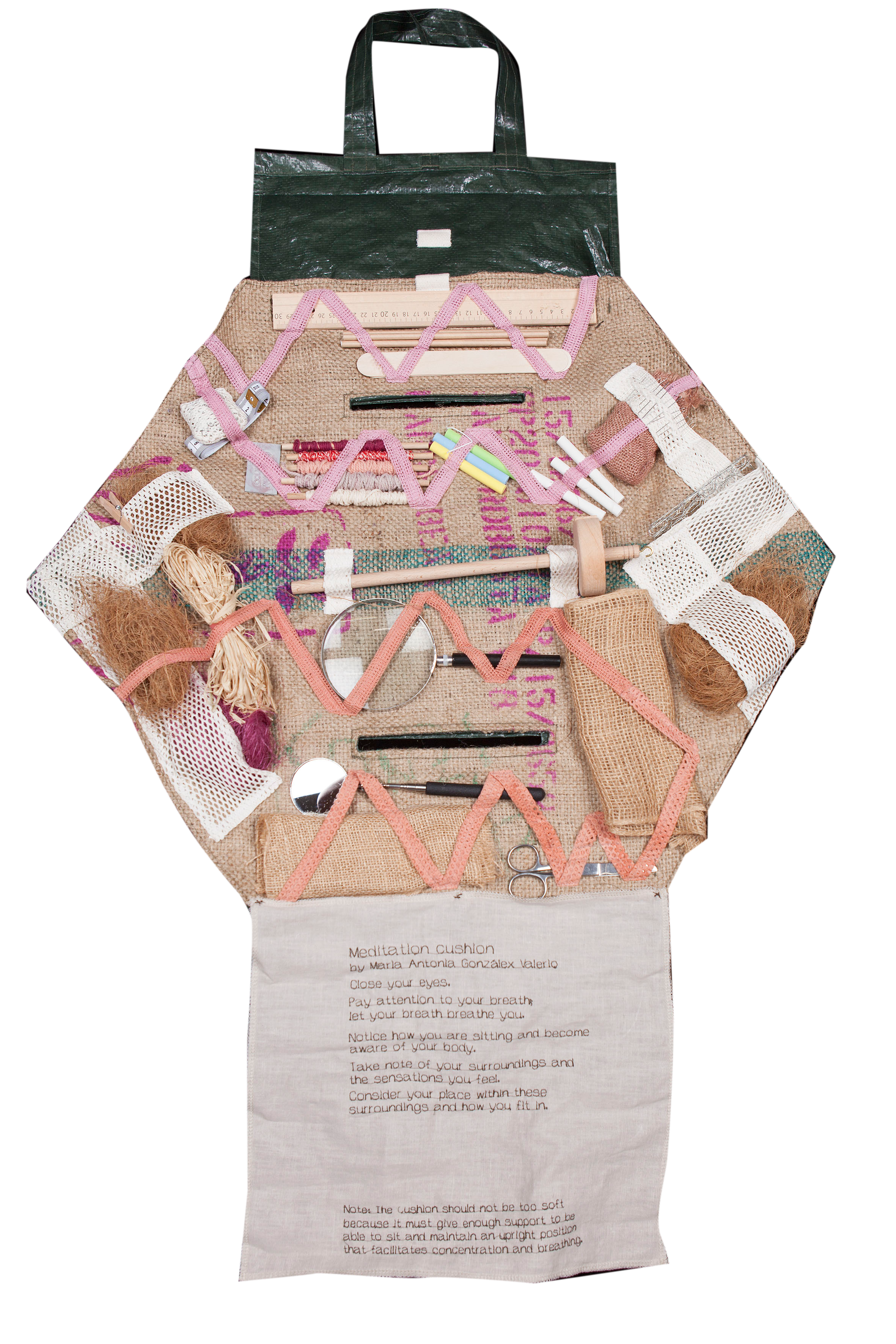
By embracing speculative methodologies, we have crafted an Ethical Hardware Kit set within the realms of a fictitious future where the availability of crucial resources for hardware production is alarmingly limited. We engaged in meaningful discussions with partners, makers, crafters, artists, students and experts, seeking insights into the development of PCBs that possess the ability to biodegrade and return to the earth.
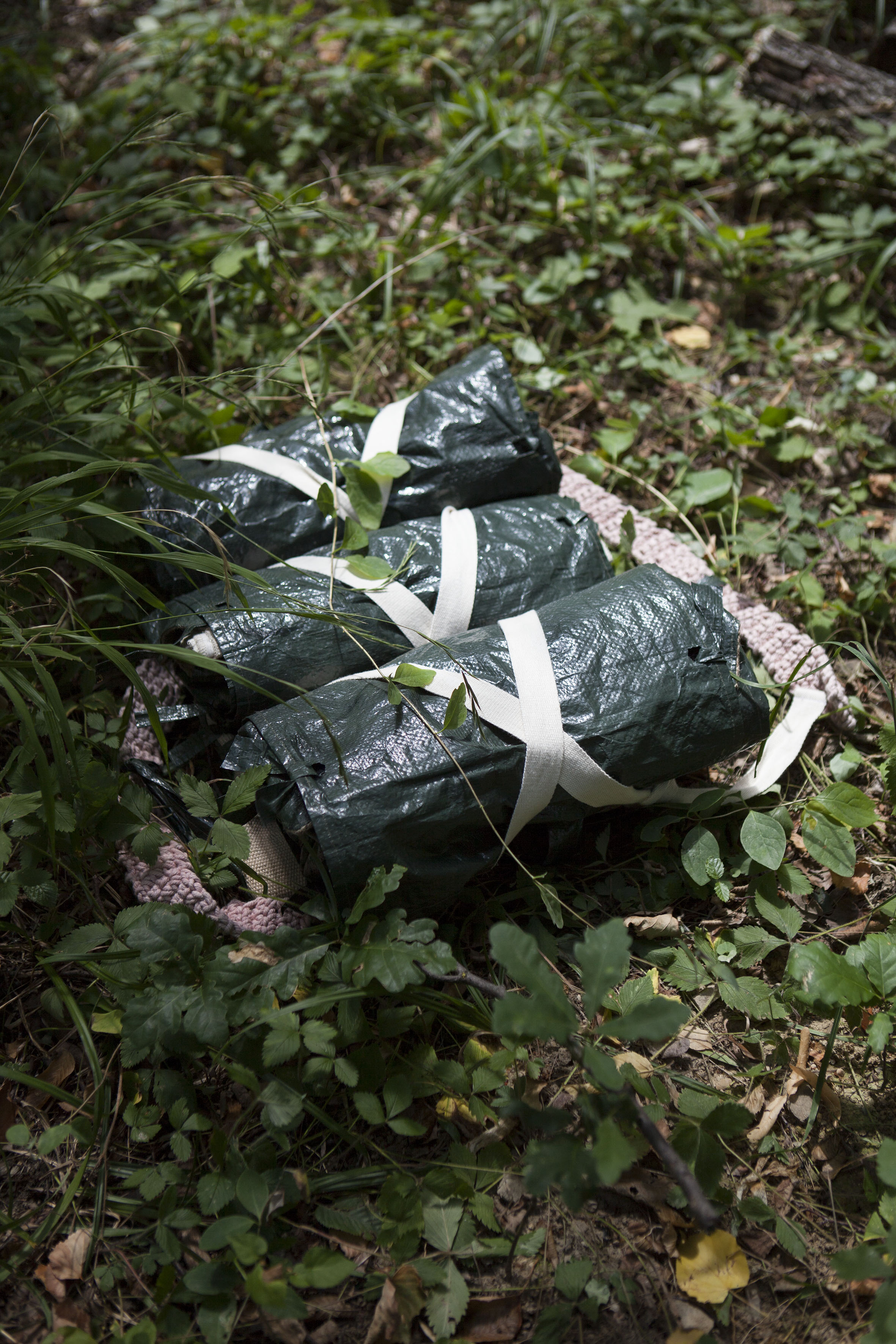
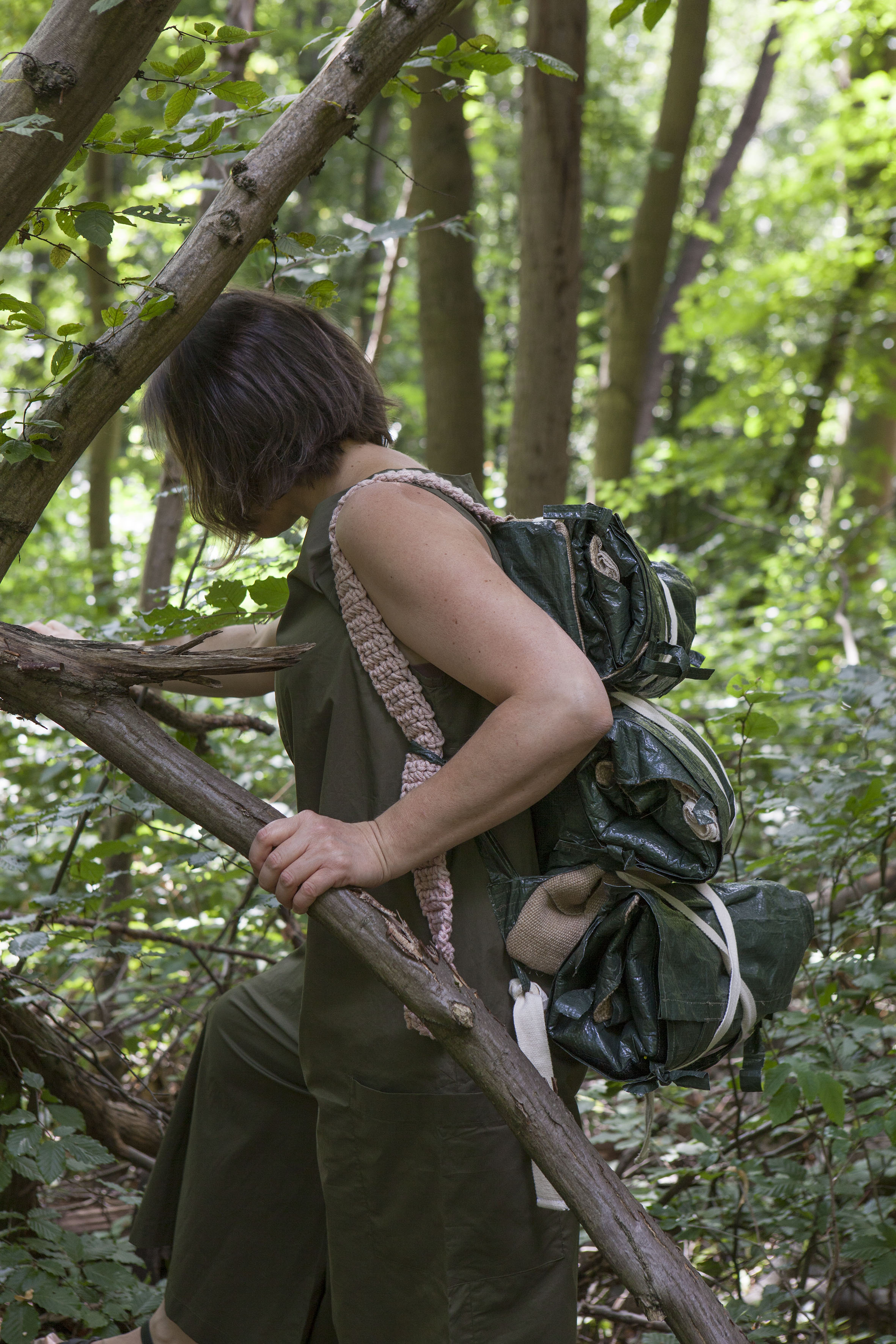
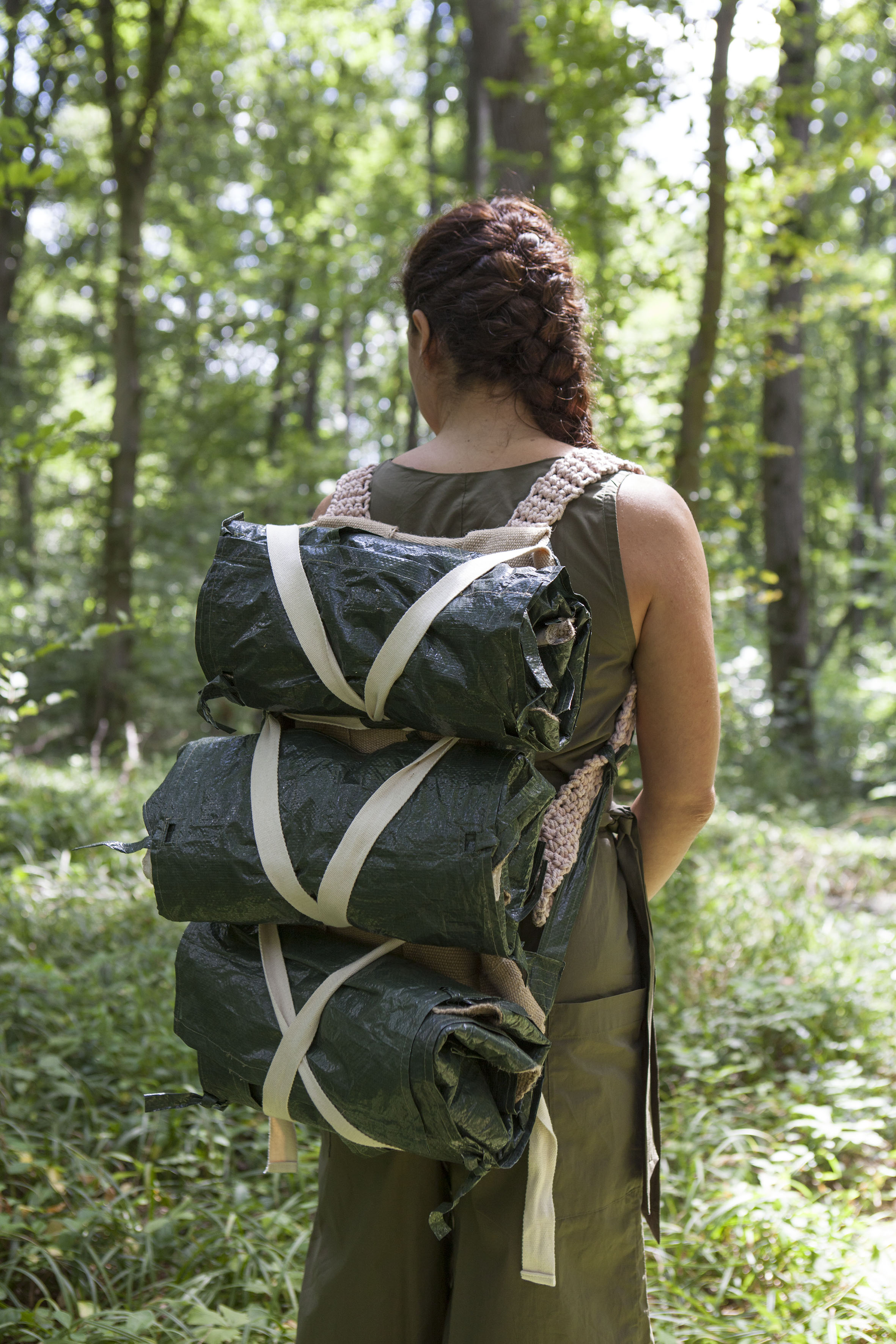
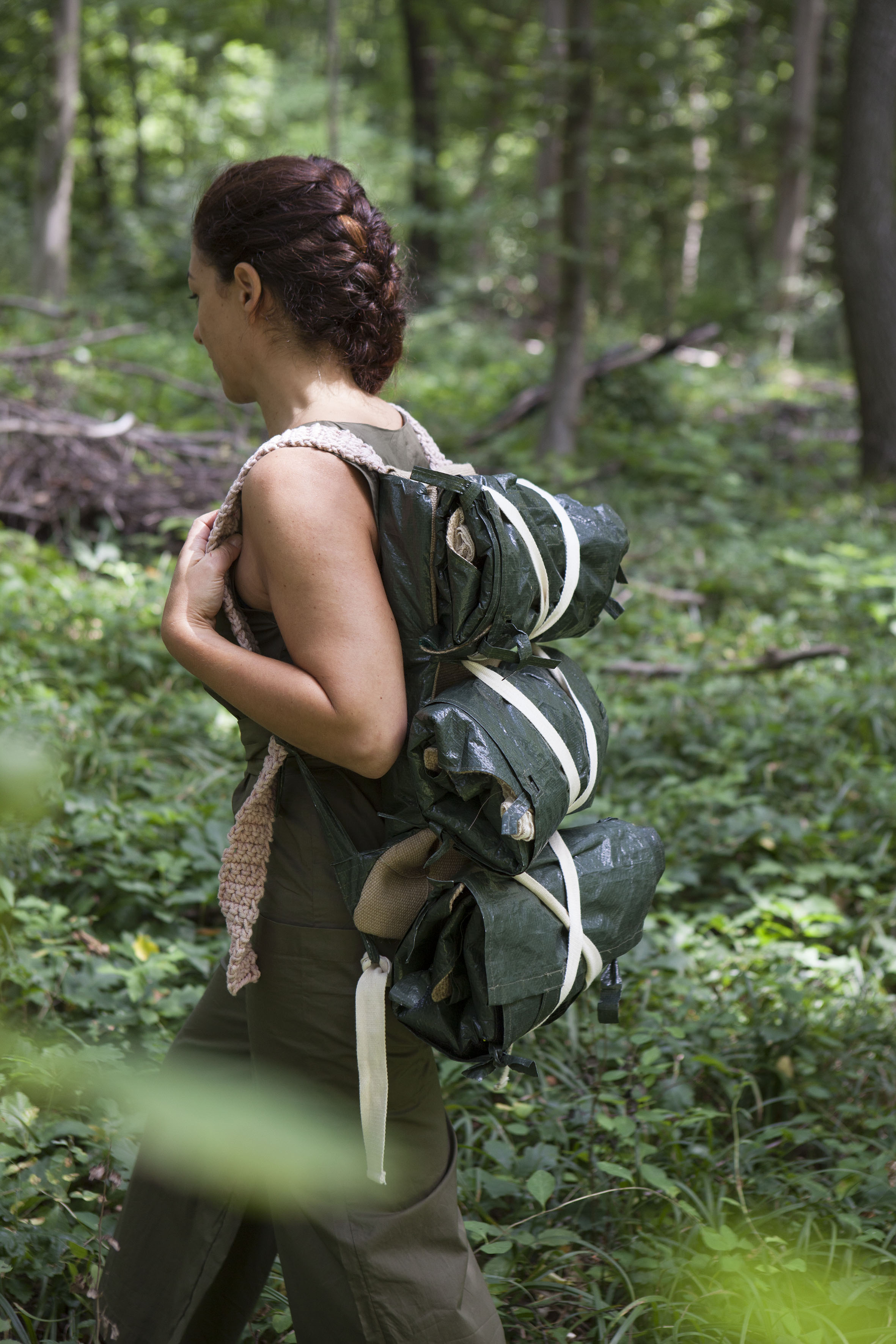
Collaborating in a dynamic brainstorming session alongside students of the Media Design class at the University of Linz (Austria), specifically within the Hackerspaces Cultures lecture, we conceived the notion of a "survival kit." This kit comprises a collection of tools, materials, and comprehensive instructions meticulously designed to empower our hacking practices, even in challenging circumstances.
This endeavor prompted us to break free from conventional thinking, inspiring us to explore innovative alternatives to the prevailing toxicity and exploitation associated with conflict materials indispensable to hardware manufacturing. In essence, we challenged ourselves to suprass traditional boundaries and contribute to a more sustainable and ethical future for hardware production.
Embedded within our ethos is a feminist code of conduct for hardware manufacturing, encompassing the following principles:
Without mining in harmful ways
Without generating e-waste
These principles serve as our guiding light, steering our commitment towards a future where hardware production is not just about being technologically advanced but mainly socially and environmentally responsible.
This endeavor prompted us to break free from conventional thinking, inspiring us to explore innovative alternatives to the prevailing toxicity and exploitation associated with conflict materials indispensable to hardware manufacturing. In essence, we challenged ourselves to suprass traditional boundaries and contribute to a more sustainable and ethical future for hardware production.
Embedded within our ethos is a feminist code of conduct for hardware manufacturing, encompassing the following principles:
Without mining in harmful ways
Environmentally friendly
Under fair working condition
Manufactured from ubiquitously available materials
Without generating e-waste
With love and care
These principles serve as our guiding light, steering our commitment towards a future where hardware production is not just about being technologically advanced but mainly socially and environmentally responsible.
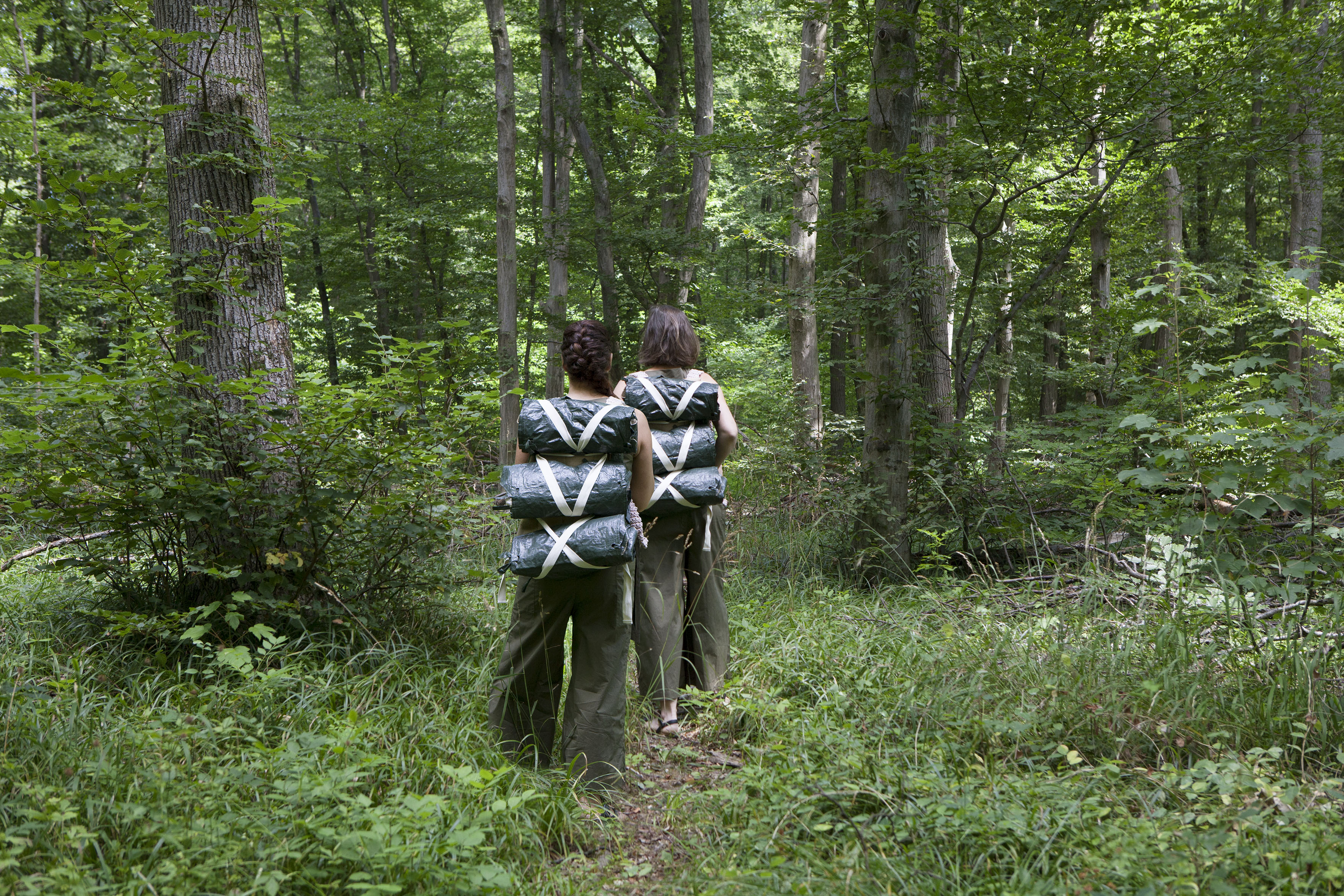
Our kit takes the shape of a backpack, housing three distinct modules that seamlessly fold into themselves fitting in the main backpack. Each module is carefully curated to carry a diverse range of materials and tools, emphasising specific areas of feminist hacking, containing one tutorial by one of our contributor experts:
Hardware and PCB Making:
The first module is dedicated to hardware and PCB (Printed Circuit Board) manufacturing. It encompasses a selection of recycles tools and materials tailored to processes involved in making ethical hardware components and PCBs. The embroidered tutorial by Hannah Perner-Wilson gives instruction to make a speaker out of forest leaves and old magnets.
Wetlab Tools and Materials:
The second module is designed for wetlab practices, incorporating tools and materials essential for wet laboratory work. This includes items required for measuring, mixing and observing as also ingredients essencial for accomplishing wetlab protocols. The embroidered tutorial by Saad Chinoy give us instructions to make Vegan leather out of kombucha.
Textile Tools and Materials (for Kit Reproduction):
The third module focuses on textile tools and materials, specifically curated not only for crafting textiles from natural available materials but also for the reproduction of similar kits. This forward-thinking inclusion encourages sustainability and self-sufficiency by empowering users to replicate the kit, extending its impact and promoting a culture of collaborative making. The embroidered tutorial by Maria Antonia González Valério gives us instruction for using a pillow (which is the base of our textile made backpack) to the practice of meditation and the state of being grounded.
Hardware and PCB Making:
The first module is dedicated to hardware and PCB (Printed Circuit Board) manufacturing. It encompasses a selection of recycles tools and materials tailored to processes involved in making ethical hardware components and PCBs. The embroidered tutorial by Hannah Perner-Wilson gives instruction to make a speaker out of forest leaves and old magnets.
Wetlab Tools and Materials:
The second module is designed for wetlab practices, incorporating tools and materials essential for wet laboratory work. This includes items required for measuring, mixing and observing as also ingredients essencial for accomplishing wetlab protocols. The embroidered tutorial by Saad Chinoy give us instructions to make Vegan leather out of kombucha.
Textile Tools and Materials (for Kit Reproduction):
The third module focuses on textile tools and materials, specifically curated not only for crafting textiles from natural available materials but also for the reproduction of similar kits. This forward-thinking inclusion encourages sustainability and self-sufficiency by empowering users to replicate the kit, extending its impact and promoting a culture of collaborative making. The embroidered tutorial by Maria Antonia González Valério gives us instruction for using a pillow (which is the base of our textile made backpack) to the practice of meditation and the state of being grounded.
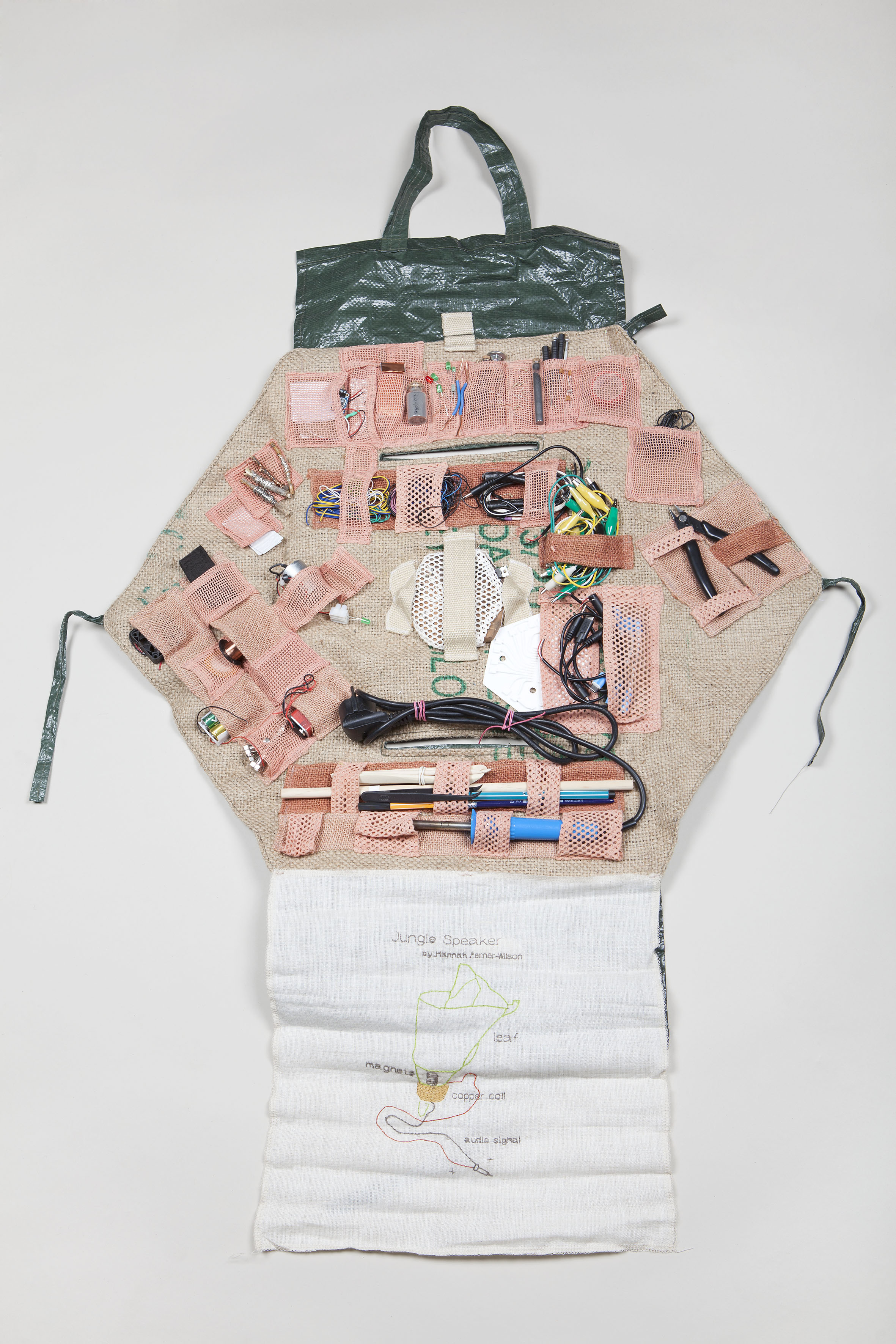


This backpack, with its versatile and modular design, aims to provide portable and comprehensive reflective tools for a range of creative hacking, ensuring that users are equipped with the necessary resources to play, explore and contribute to diverse fields of feminist hardware making.
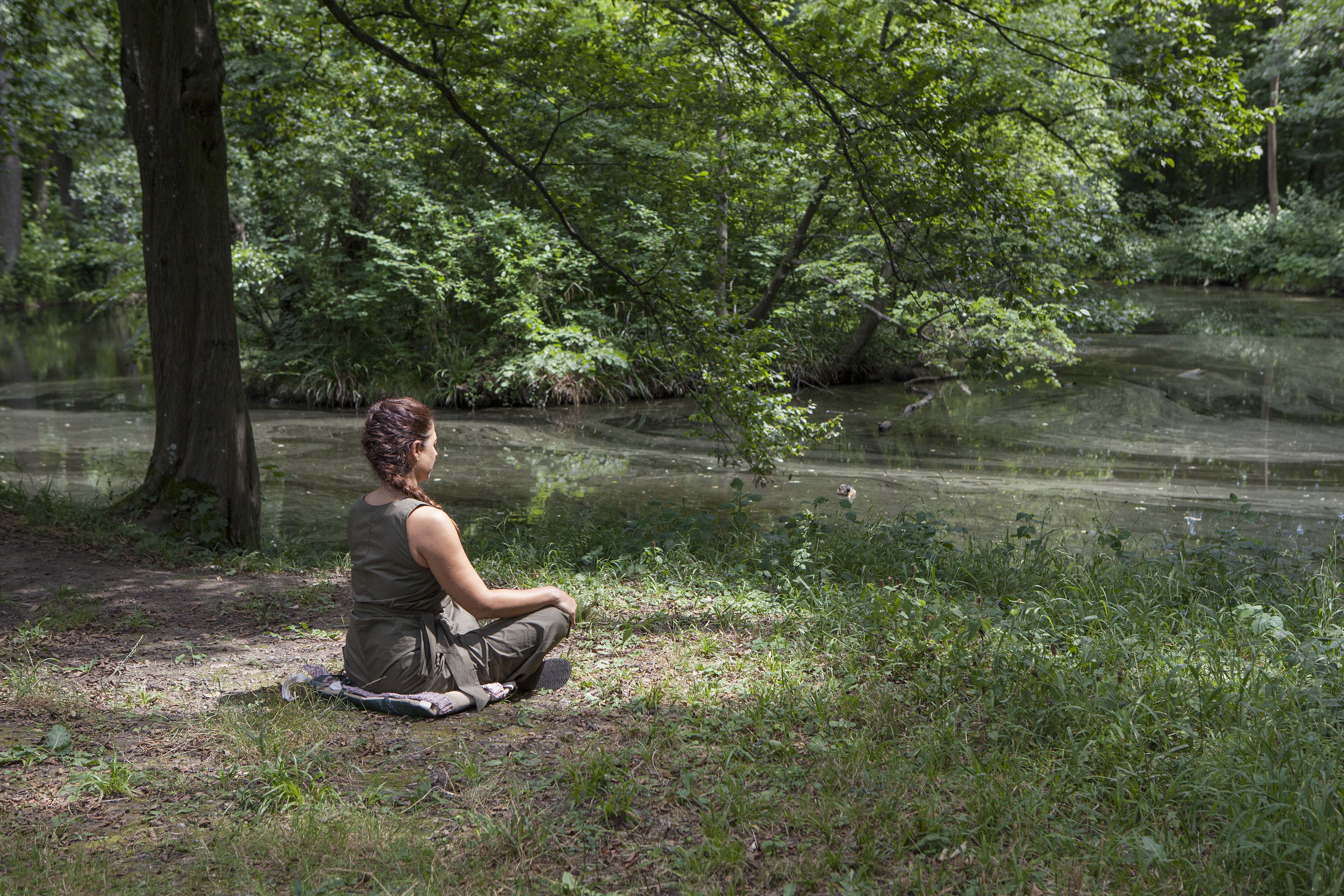



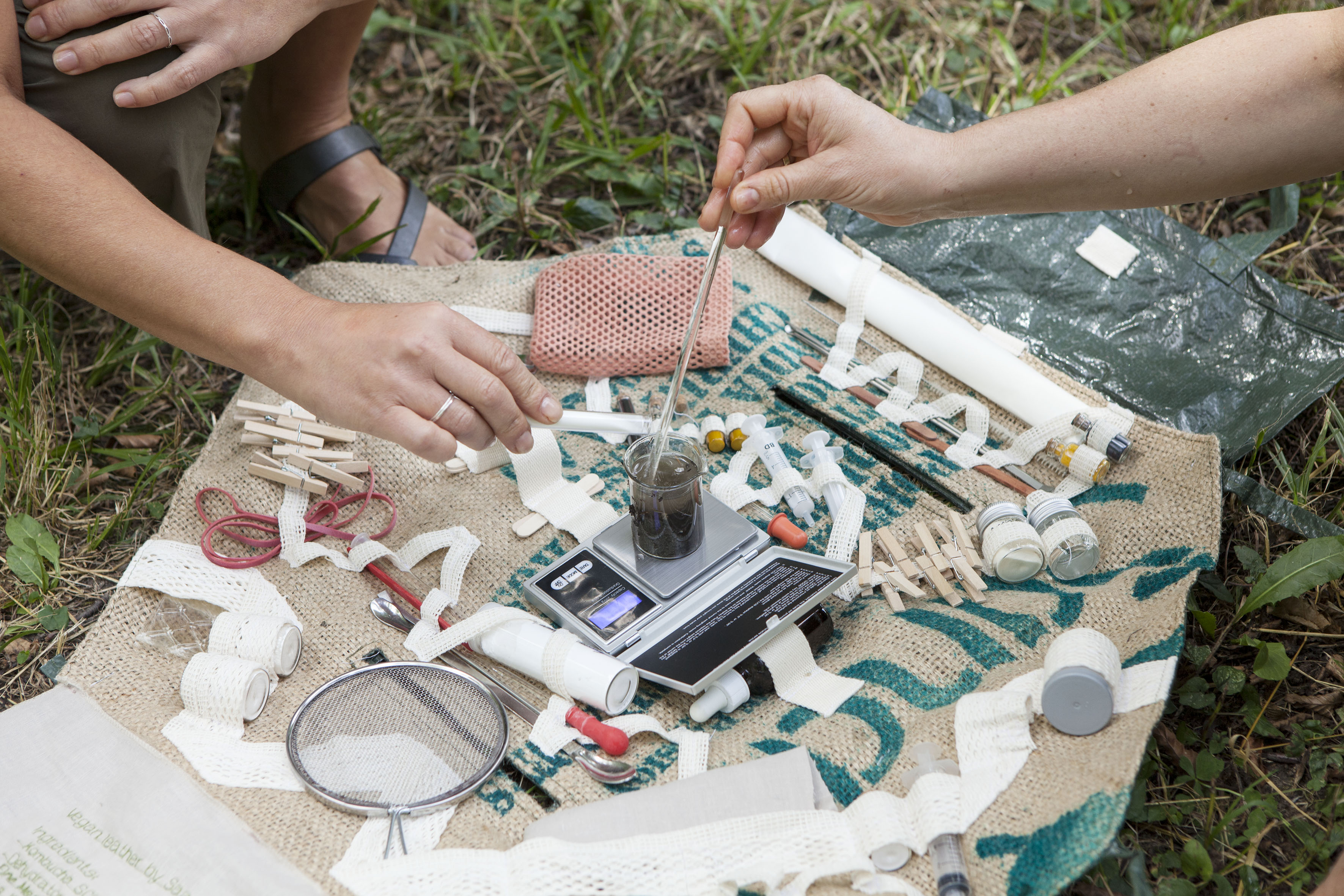
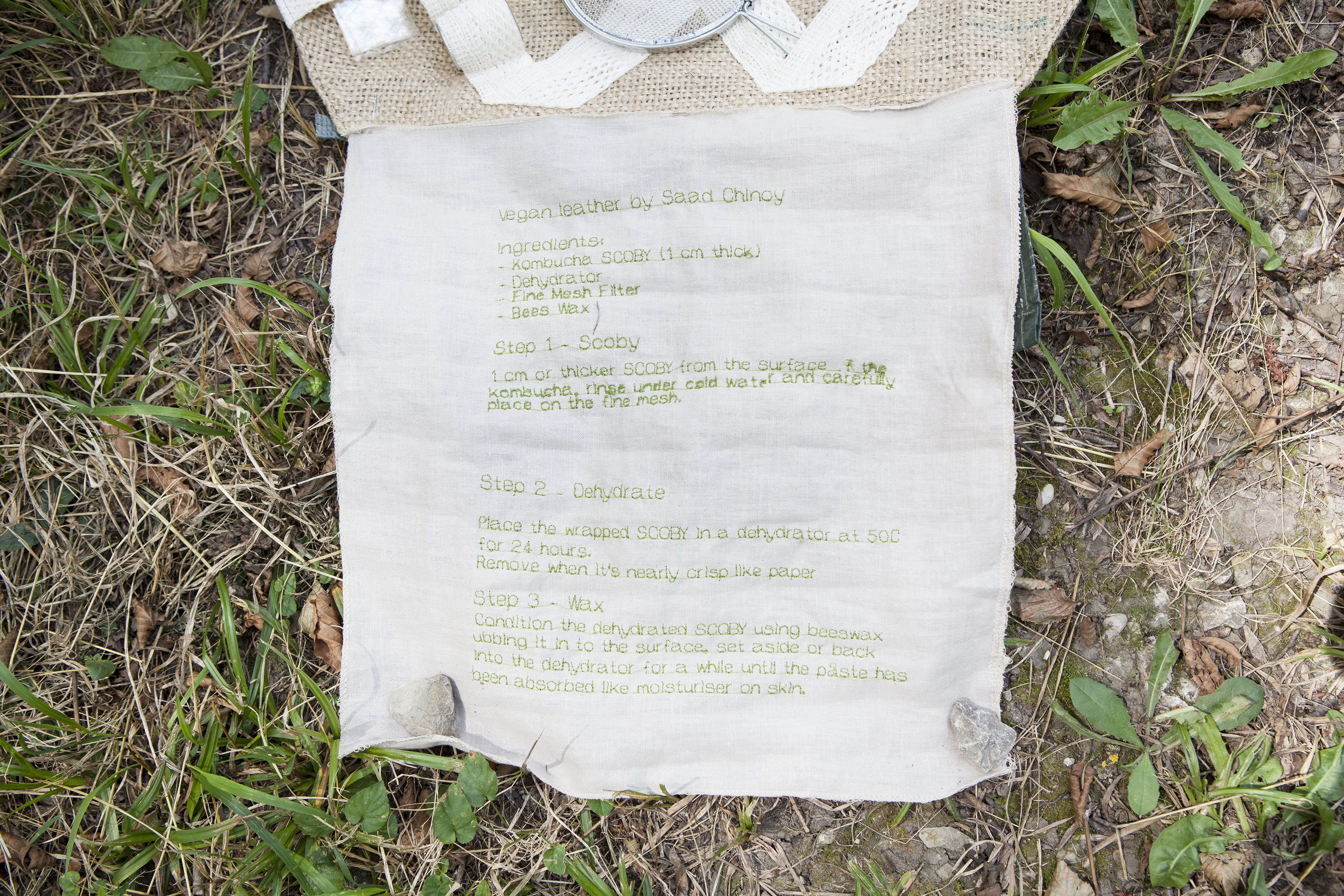

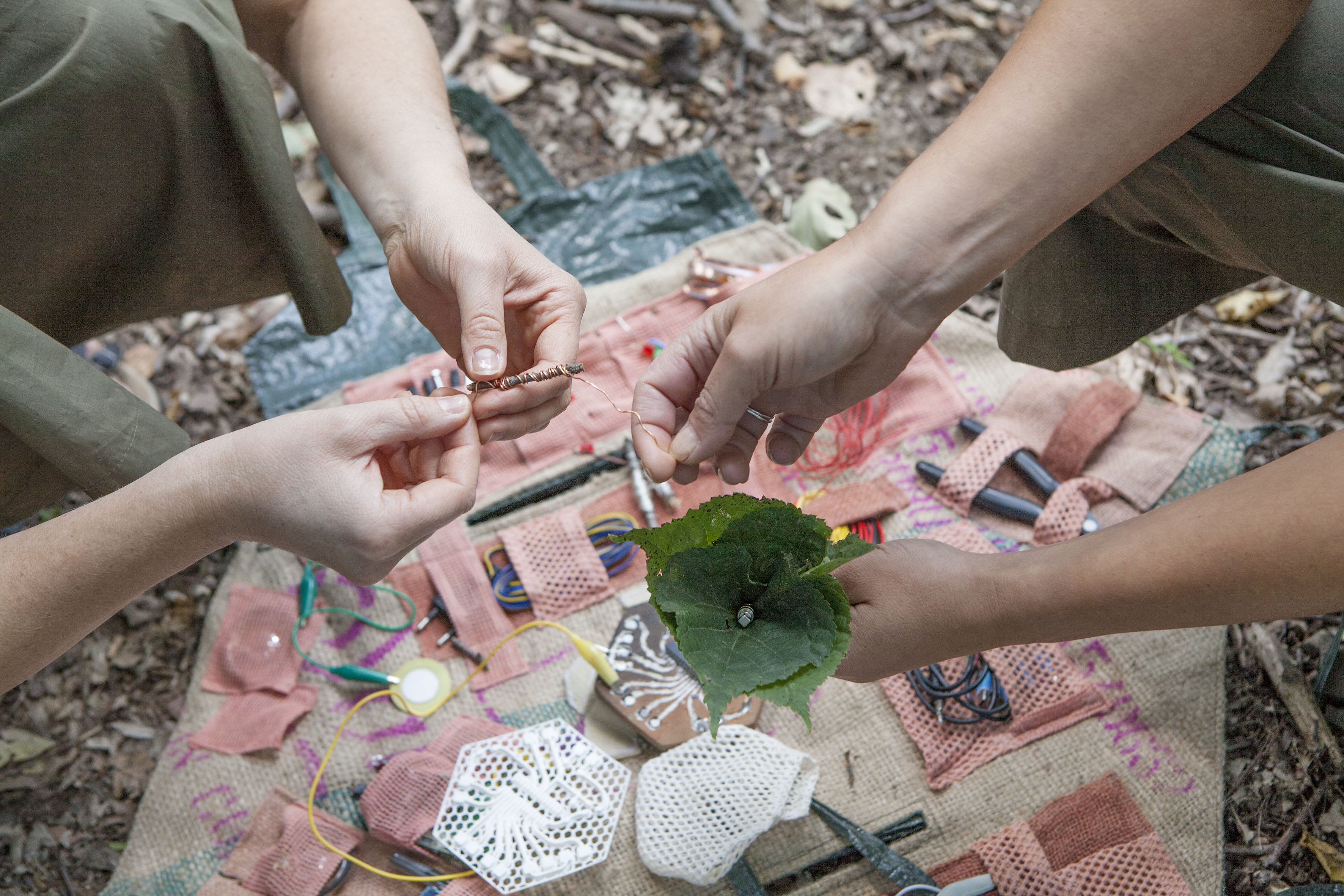
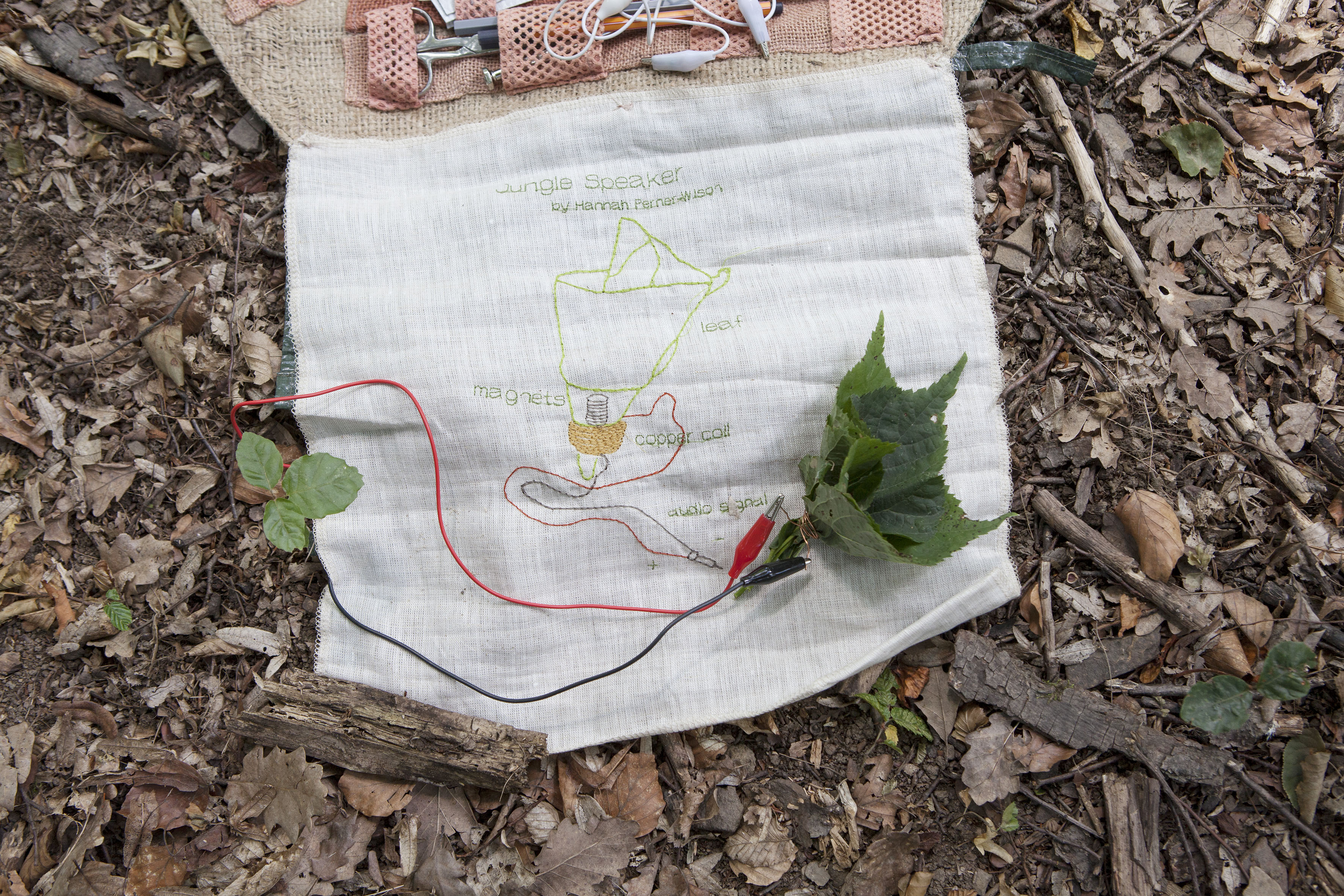
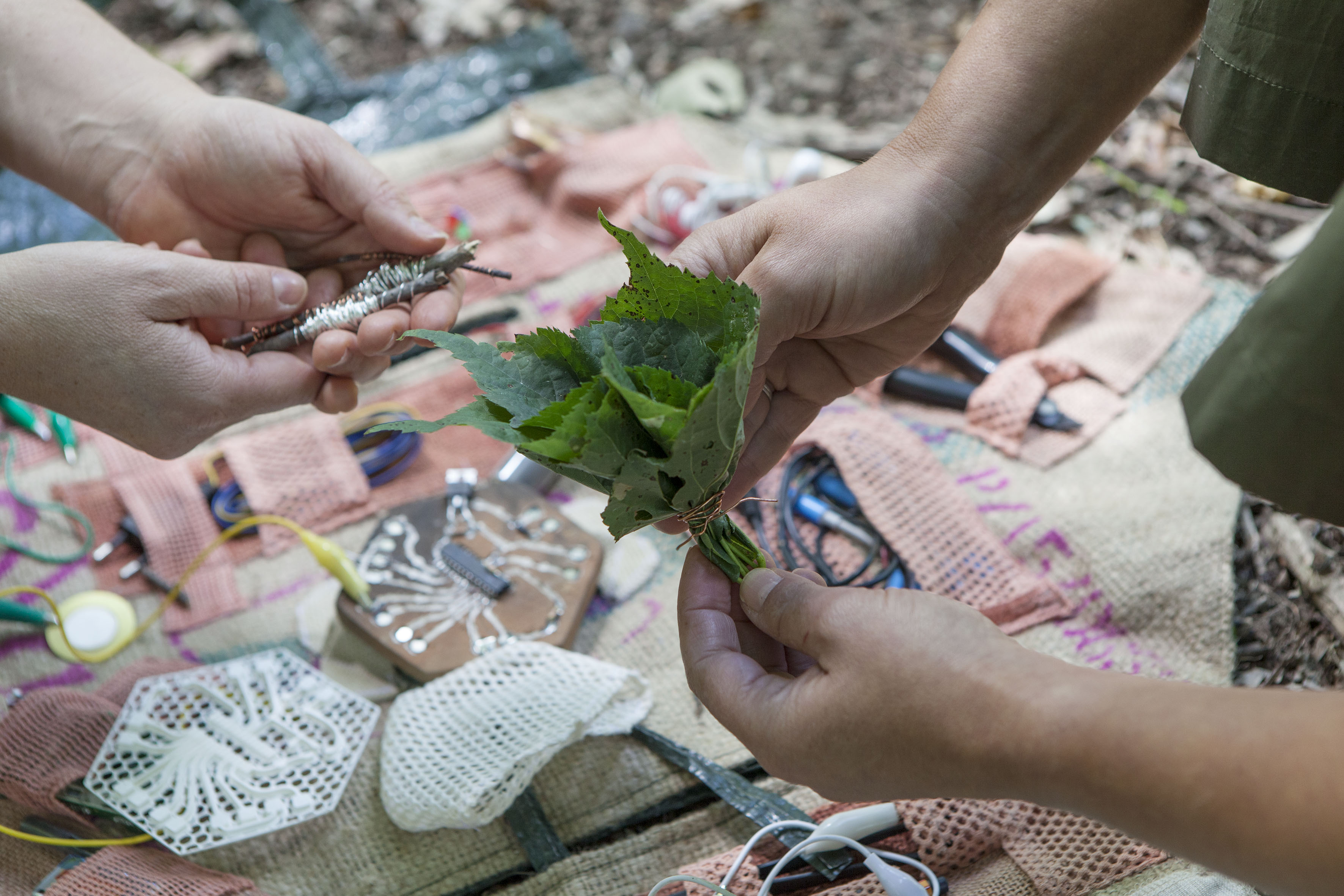
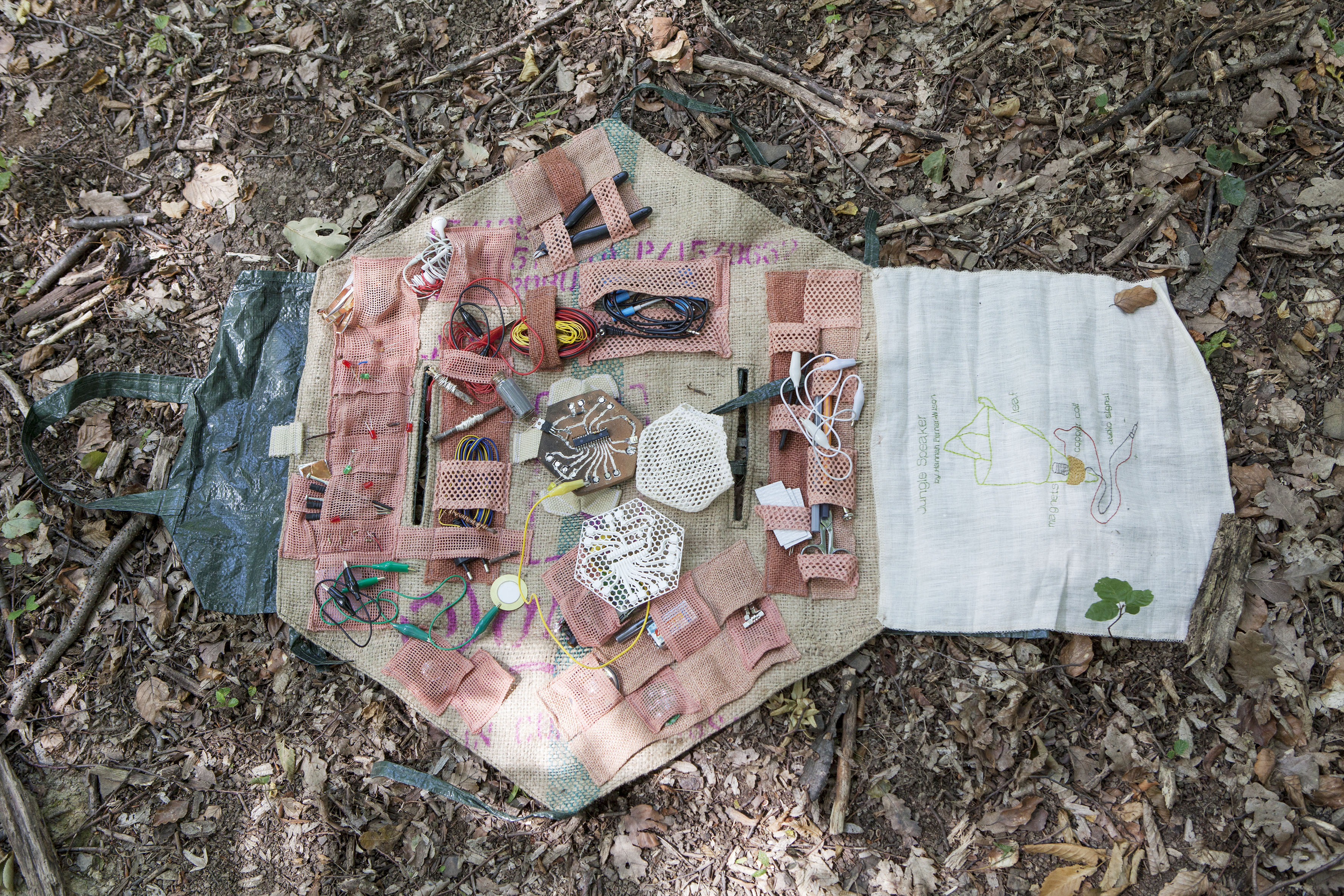
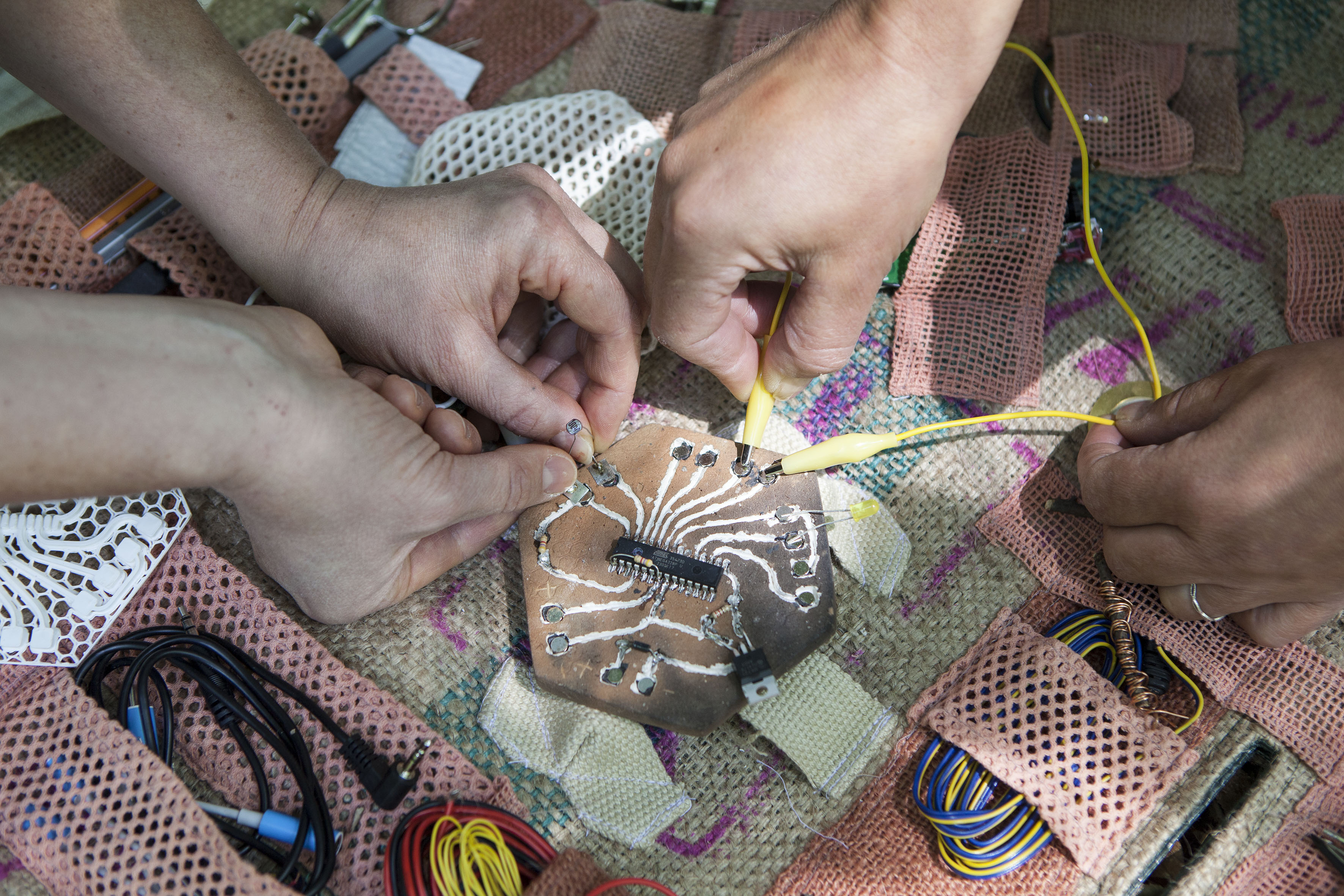
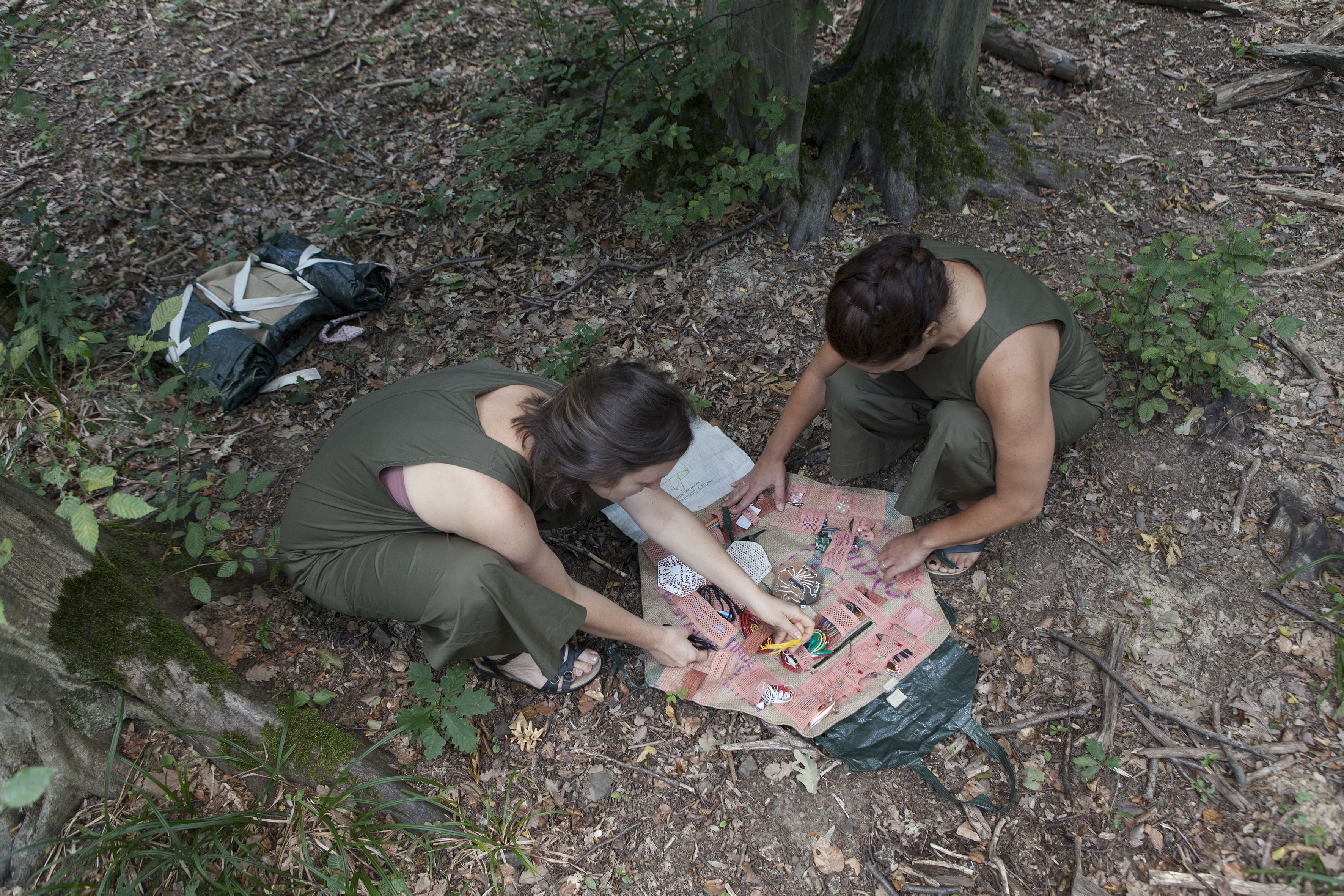
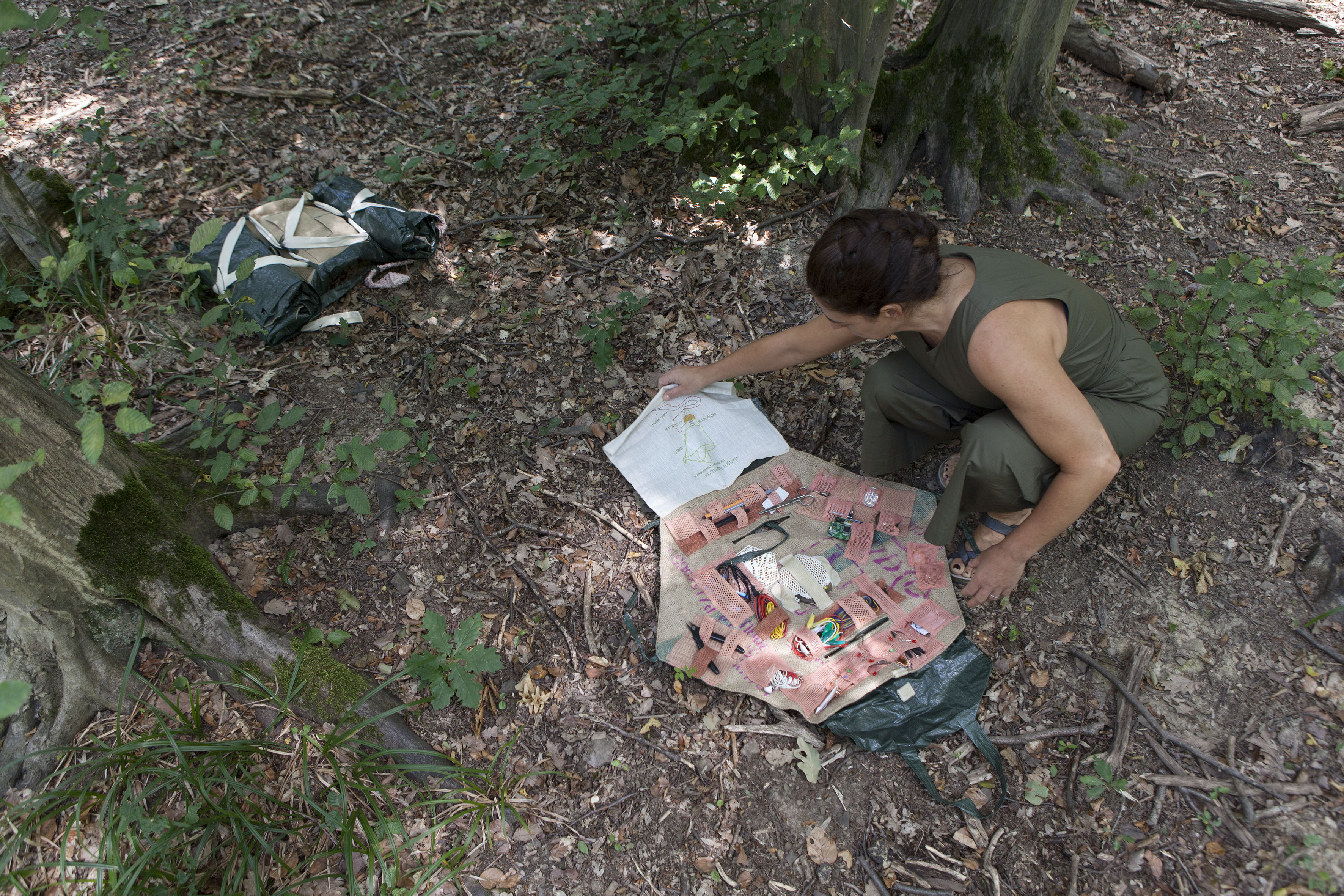

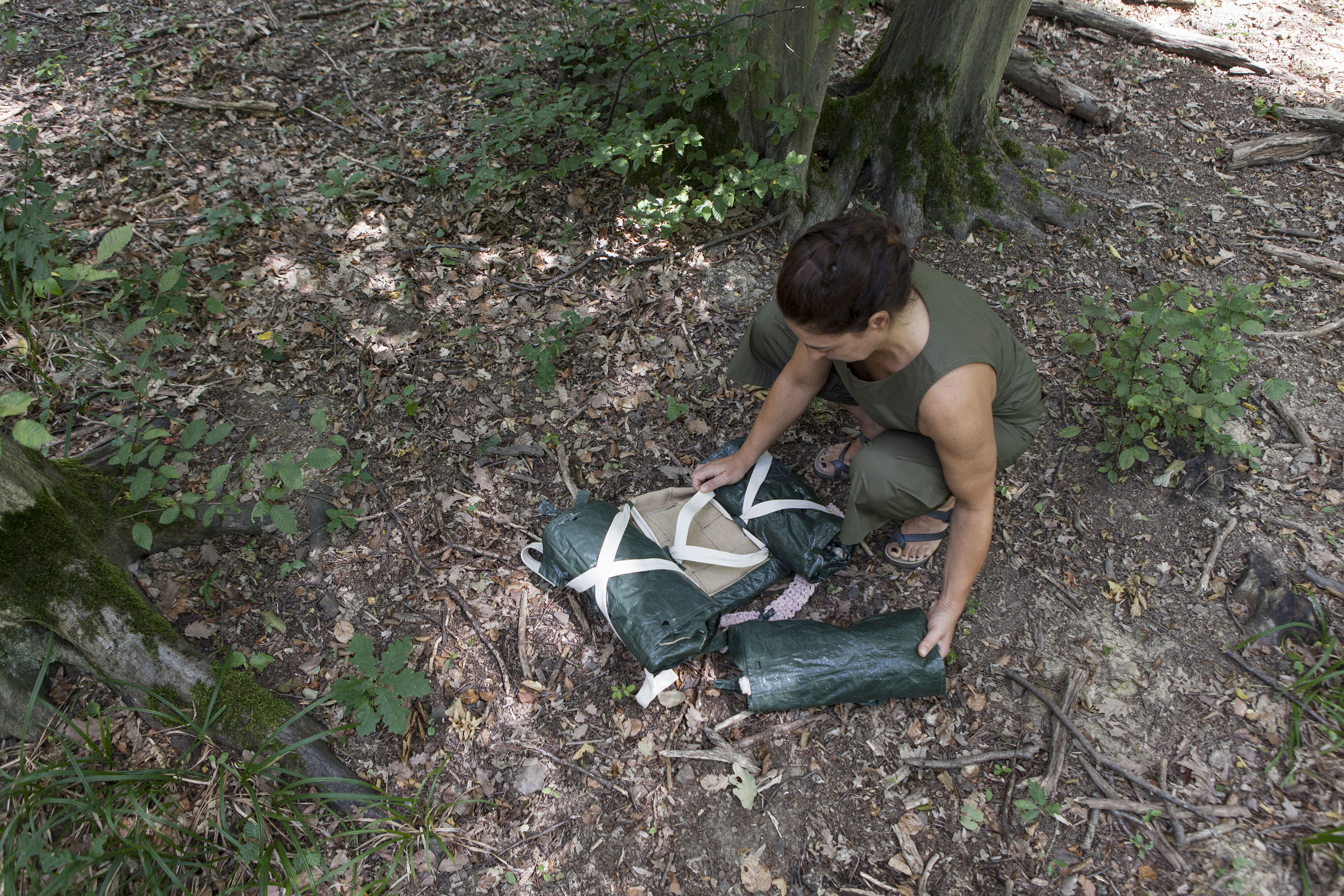
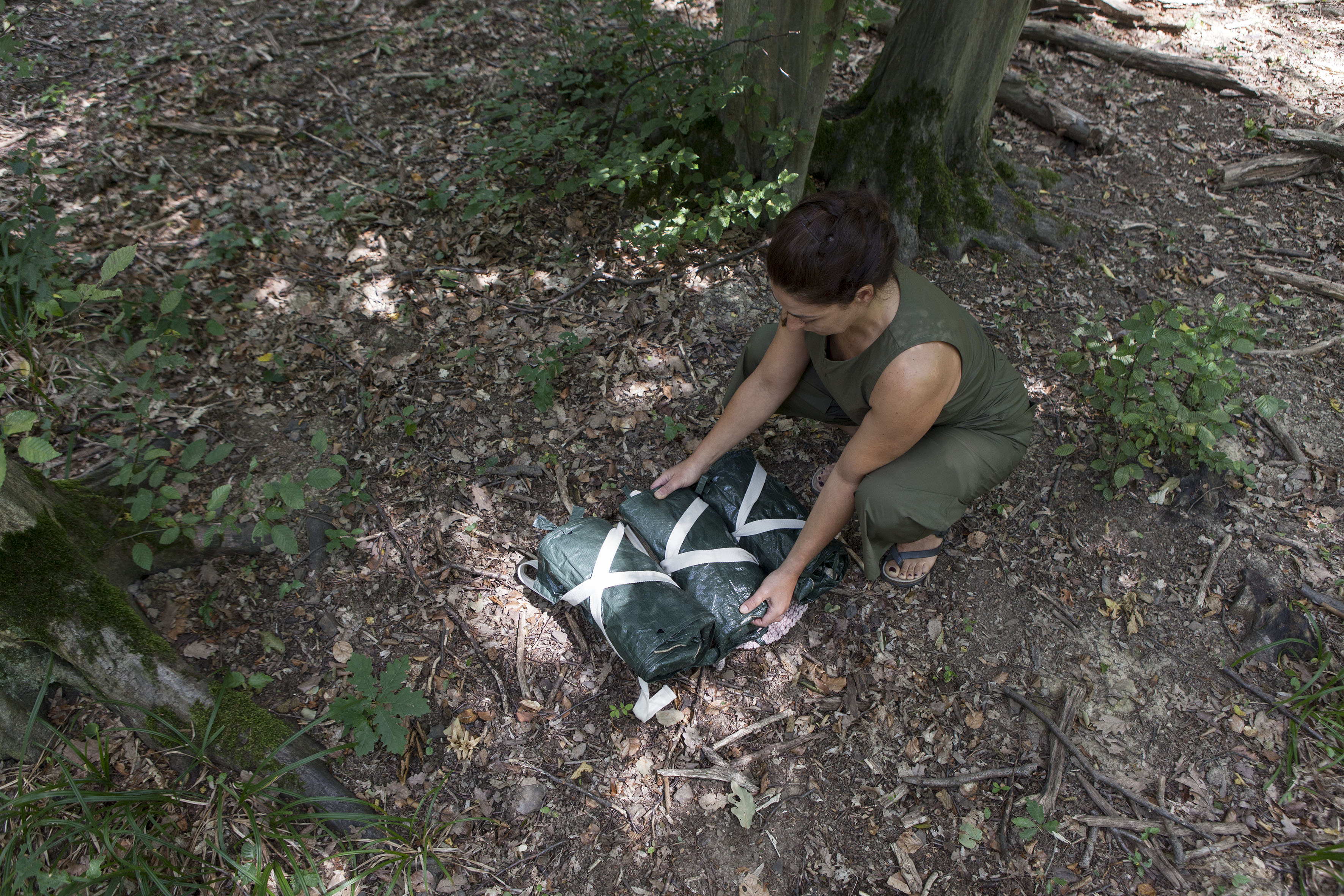
Credits:
Concept and Design:
Patrícia J. Reis & Stefanie Wuschitz
in collaboration with the students of Media Design (Hackerspace Cultures) of University of Arts in Linz, Austria:
Melanie Steinhuber, Petra Francesca Weixelbraun, Florian Winkler, Alba.
Curatorial work: Patrícia J. Reis
Textile Design: Erika Farina
Photos: Janine Schranz
